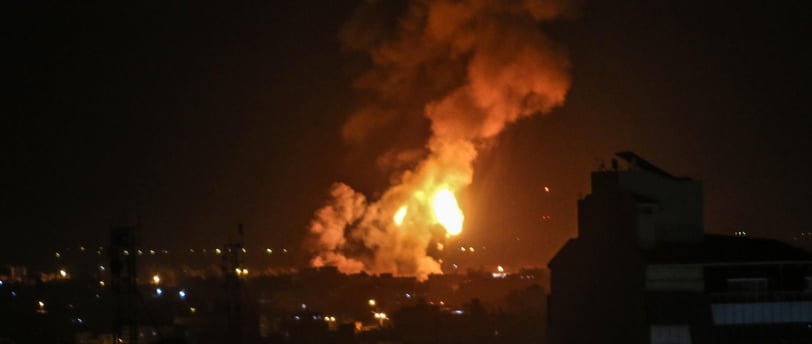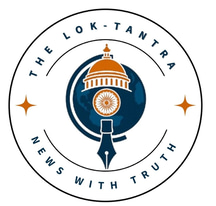Israeli Strike Eliminates Hezbollah Chief Hashem Safieddine
NEWS
10/5/2024


Beirut, October 5, 2024 — In a bold and high-stakes military operation, Israeli forces reportedly eliminated Hezbollah’s new leader, Hashem Safieddine, in a precision airstrike on Beirut late Thursday night. Alongside the Hezbollah chief, reports suggest that Esmail Ghaani, the commander of Iran’s elite Quds Force, was also caught in the strike and may have sustained critical injuries. This development marks a significant escalation in the already volatile situation in the Middle East.
According to initial reports from both Lebanese and Israeli media, the strike targeted a heavily fortified Hezbollah stronghold in the Dahiyeh district of Beirut. Safieddine, who had recently succeeded the long-serving Hassan Nasrallah as the head of Hezbollah, was a key figure in the militant group’s operations, making his elimination a critical blow to its leadership structure.
The inclusion of Esmail Ghaani in the strike, if confirmed, adds a further layer of complexity. Ghaani, who succeeded Qassem Soleimani as the head of Iran’s Islamic Revolutionary Guard Corps (IRGC) Quds Force, was reportedly in Beirut to coordinate military support for Hezbollah. His presence indicates the deepening strategic ties between Hezbollah and Tehran, as both entities continue to challenge Israeli interests in the region.
Impact on Hezbollah and Iran
The death of Safieddine is likely to cause ripples within Hezbollah’s ranks. Known for his close relationship with Iran’s Supreme Leader Ayatollah Ali Khamenei, Safieddine had played a key role in Hezbollah's political and military strategy. His leadership was expected to further cement the group’s position as a critical player in Lebanon’s political landscape, as well as in the broader Middle East conflict.
Israel’s targeting of such high-profile figures suggests an aggressive new phase in its strategy to neutralize threats from Hezbollah and Iran. Hezbollah, backed by Iranian weapons and financial support, has long been a major player in Lebanon and a primary adversary of Israel, especially along the Israel-Lebanon border. Safieddine’s death will likely leave a temporary power vacuum within the organization, though Hezbollah has been known for its resilience in maintaining continuity within its leadership.
Escalating Regional Tensions
The strike comes at a time of escalating tension in the region, with multiple actors vying for influence in Lebanon, Syria, and beyond. Israel has consistently warned that it would not tolerate Hezbollah’s growing military capabilities, which include advanced missile systems and drones supplied by Iran. Israeli Defense Minister Yoav Gallant emphasized that “any threat from Hezbollah will be met with overwhelming force,” signaling that Israel will continue its preventive military actions.
Meanwhile, Iran's influence in the region has been a growing concern for Israel and Western powers. Esmail Ghaani’s potential injury in the strike could significantly affect the operations of the IRGC’s Quds Force, which plays a key role in exporting Iranian military influence across the region. Ghaani, like his predecessor Soleimani, was instrumental in shaping Iran's regional strategies, especially in Syria, Iraq, and Lebanon.
International Reaction
The international community has responded cautiously, with the United States and European Union urging restraint to avoid further destabilization in Lebanon. Washington has expressed support for Israel’s right to self-defense but has also called for diplomatic measures to de-escalate the situation. The UN has warned that continued military actions could lead to another devastating conflict in Lebanon, similar to the 2006 Israel-Hezbollah war.
Lebanese Prime Minister Najib Mikati condemned the strike, calling it a “violation of Lebanon’s sovereignty,” and warned that Israel’s actions could drag Lebanon into a wider conflict. Hezbollah has yet to officially comment on Safieddine’s death, but analysts expect a retaliatory response, which could range from targeted attacks on Israeli positions along the border to a broader regional escalation involving Iranian-backed militias.
Looking Ahead
As the situation develops, regional experts warn that the elimination of Safieddine could lead to a new round of hostilities between Hezbollah and Israel. With the possible injury of Ghaani, Iran may also look to respond forcefully, further complicating the already intricate web of alliances and hostilities in the Middle East.
Israel’s move to strike at the heart of Hezbollah’s leadership signals a new phase in the long-standing conflict, and both sides are bracing for the fallout. For now, Lebanon and its neighbors remain on edge, anticipating Hezbollah’s next move in what could become a new chapter in the region’s ongoing power struggle.


